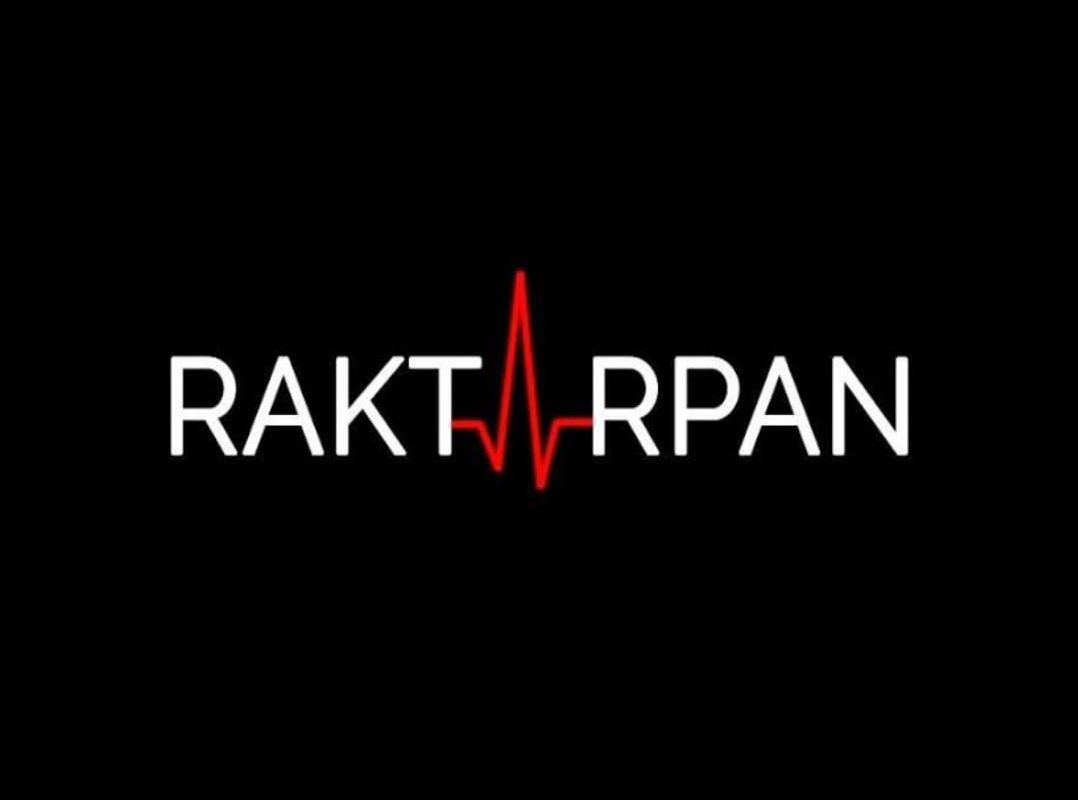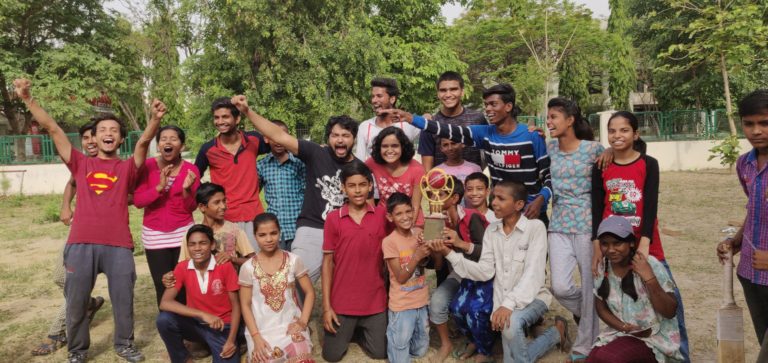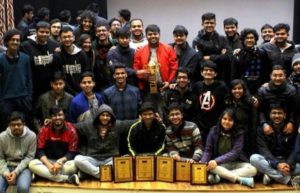Vox Populi brings to you the third edition of the series Campus Blueprints: The journey of Raktarpan. We interviewed one of the initial members of Raktarpan, Shubham Prakash and the present overall coordinator of Community Welfare Cell, Piyush Patel, to bring to you an overview of Raktarpan and how the stimulation of blood donation was able to evolve over the years and show you a glimpse of how Raktarpan is constantly working as a blockade between a person’s life and death. Read on to explore more of its history.
Raktarpan: Activities and reach
Shubham mentions that Raktarpan’s activities can be seen through the lens of three streams. The first domain is handling and resolving the demands they receive through many calls from around Kanpur city. The second domain is spreading awareness among individuals through seminars and dance events. The third important domain is to conduct blood donation camps. Other than this, they also focused on outreach as they wanted the name of Raktarpan to be spread among different hospitals.
In the pre-pandemic times, Raktarpan organized blood donation camps in every hall. It yielded around 1000-1200 donations in a year. They also conducted awareness sessions, which broke the myths on the risks of blood donation. Online posters and articles were released for campus janta.
When directly contacted by anyone in need of blood, Raktarpan managed to make arrangements from the blood banks. However, in some cases, the requirement was of a rare blood group, and mails had to be sent to the entire campus community. The team comprises around 30 volunteers and has handled more than 600 requests in a year. Almost all the requests are catered on time. With such work efficiency, Raktarpan has saved uncountable lives while also managing to educate people about the safe and simple process of donating for a good cause.
But, most of the work undertaken was restricted to the offline mode, and the online conduction was sure to fetch no good results when it came to events. The team has currently advanced on conducting competitions on making creative memes, writing articles. It has created ways to take interviews to help the prolonged dormancy and replenish the activities even in such hard times!
Early struggles
Piyush mentions that, about four years ago, all the volunteers of Raktarpan were new with no whatsoever practice and little awareness about the kind of work to be done. Some of them even had to handle around 150 donations daily, which meant volunteers hardly got the free time.
The major problem that Raktarpan faced in the early days was funds. Initially, Raktarpan was not a club but a part of NSS and their annual budget was around 5 thousand rupees, making the situation harder for them. This was resolved by taking Raktarpan into gymkhana as an individual club. If some bigger events were lined up, they tried getting sponsorship from SBI IITK. One of the other challenges which came was the stigma of the Health centre and authorities. They had to make sure that at least a doctor must be present in every blood donation camp. As the initial team was small, managing the database of regular donors and asking them for their serving in Raktarpan was a challenging task.

Motivation to join Raktarpan
Before coming to the campus, Shubham didn’t think he’d be working for Raktarpan. What urged him to join and work for Raktarpan was his wing mate’s experience with blood donation and how he was treated so well by the blood recipient and his family, it created a great sense of warmth inside him. At that point, he knew he had to work for this organization.
Piyush went with a mindset of exploring every club out there as every fresher does. After coming to campus, he tried different genres and finally landed in Raktarpan in February 2018, and since then, he has been an integral part of it.
Organization of Blood donation camps
Raktarpan arranges around 20 camps a year, i.e., two every month, on campus and outside. The volunteers adhere to managing the entire non-medical arena. The team works on the logistics of facilitating proper management while at the same time, also monitors and ensures the safety of the donors.
Raktarpan has collaborated with BloodConnect Foundation, a student-run NGO fostering the same cause. Thereby, camps are organized in unison, where both groups contribute equally.
In early 2015, when Shubham joined the Raktarpan, the team was very small, making it hard for them to conduct blood donation camps regularly. They usually conduct three camps in his initial period of joining, but by the end of Shubham’s graduation, Raktarpan was conducting around seven blood donation camps. Instead of organizing camps in the yoga hall, they shifted it to the respective halls. It turned out to be a fruitful process that resulted in a considerable amount of blood collection.
Response from the campus community
Talking about volunteers, Raktarpan has a considerable number of enthusiastic students willing to work for it. This number escalates amongst the PGs, who are adamant about lending help whenever needed. Following this, the team amasses up to 100 PG donations in any camp organized, while the same number dips down to 10 when it comes to UG hostels.
Shubham mentions that people are very much interested in donating blood but not so much when it comes to volunteering to conduct a blood donation camp or for an awareness session.

Connectivity of Raktarpan outside the campus
Outside the campus, there are many collaborations with Raktarpan, one of them being BloodConnect. It works in Kanpur city, and whenever there’s a camp outside the campus, they are the one being approached. Many volunteers in Raktarpan are part of NGOs, which helps in the smooth running of such works. The next is a media collaboration with Amar Ujala, which helps advertise their work by covering them in their newspaper. There are other NGOs, too, like the Robinhood army, which have mutual volunteers with Raktarpan.
Evolution of Raktarpan
Shubham marks that Raktarpan has evolved, and is heading in the right direction. The number of people involved and the reach has increased. Raktarpan can now help more helpline cases and conduct a higher number of camps in Kanpur than they did before. According to Shubham, what Rakatarpan needs right now is more support from the students especially during the COVID lockdown.
According to Piyush, Raktarpan has evolved a lot in the last couple of years. Before every camp, they have to approach campus janta for blood donation, but now people are clued-up about this thing and come by themselves in blood donation camp. When Piyush joined the club, Raktarpan’s work was more restricted to the campus, but as time passed, collaboration expanded to the organization like Amar Ujala, Robinhood army, etc. Also, awards from the Chief Medical Officer of Kanpur and appreciation from the state government added feathers to the Raktarpan’s cap.
Memorable experiences
Piyush recalls that he volunteered for the city-level works of the NGO BloodConnect for around 4-5 months in Kanpur city. Also, he travelled to places like Amritsar, Mumbai, and Kolkata for the All-India level NGO meets, concluding that Raktarpan is a good opportunity to gain exposure and meet amazing people.
Shubham was the helpline manager in the summer after his 1st year. One day, while working, a request for an AB negative blood group came his way, and in his batch, only five students had the same blood group, out of which only two were present on campus. So, Shubham talked to one of them, gave out his side of the argument. He even went on to say that if they didn’t donate their blood, the patient would be in life-threatening conditions!
But thankfully, Shubham’s series of rational and irrational arguments finally convinced one of the two people to donate their blood. The person who did go to donate, after coming back, said that he felt an immense sense of satisfaction and that the patient’s family reaction was also very supportive, kind, and thankful. After that experience, he started donating blood regularly. This is an experience Shubham feels grateful for because due to his persistent requests, another person decided to donate blood and has now become a regular donor!

Necessary changes that need to be made in Raktarpan
It takes people time to understand how to conduct blood donation camps efficiently. If such camps are not publicized adequately, then people don’t show up. Thus, every time a new team organizes a blood donation camp, fewer people turn up. Whereas an experienced team conducts more efficient blood donation camps. Thus, Shubham suggests Rakatarpan should keep volunteers motivated to be involved for longer periods.
Another issue that Raktarpan faces is the selection of blood banks and consistently supplying them blood. For instance, even if they collect 500 units of blood in a single camp, it must be realized that blood is not used over a day; it is a long process and will be utilized over a year! So, Piyush advises that instead of conducting donation camps with larger goals, one can conduct small-scale blood donation camps regularly to say different halls of residences.
Message to the future members of Raktarpan
Shubham: Blood donation is a great thing to do, but if you can create a good experience for the people who do donate blood, that is what will last a long way. So one must make sure the right set of people come to you, and you can help them get a good experience. This will urge those people to attend more blood donation camps, and help decrease the blood shortage and bring the situation down to a better place.
Piyush: You should not think of community service as an activity that doesn’t provide growth opportunities. For me, BloodConnect was just the start of the many opportunities and encouraged me to work further. This should not be a burden and just another point on your CV. The feeling should come from within.

Writers: Aaryan Mehar, Ananya Gupta, Astha Pant, Namgyal Lhamo Dolma, Sandipan Mitra
Editor: Sarvesh Bajaj











